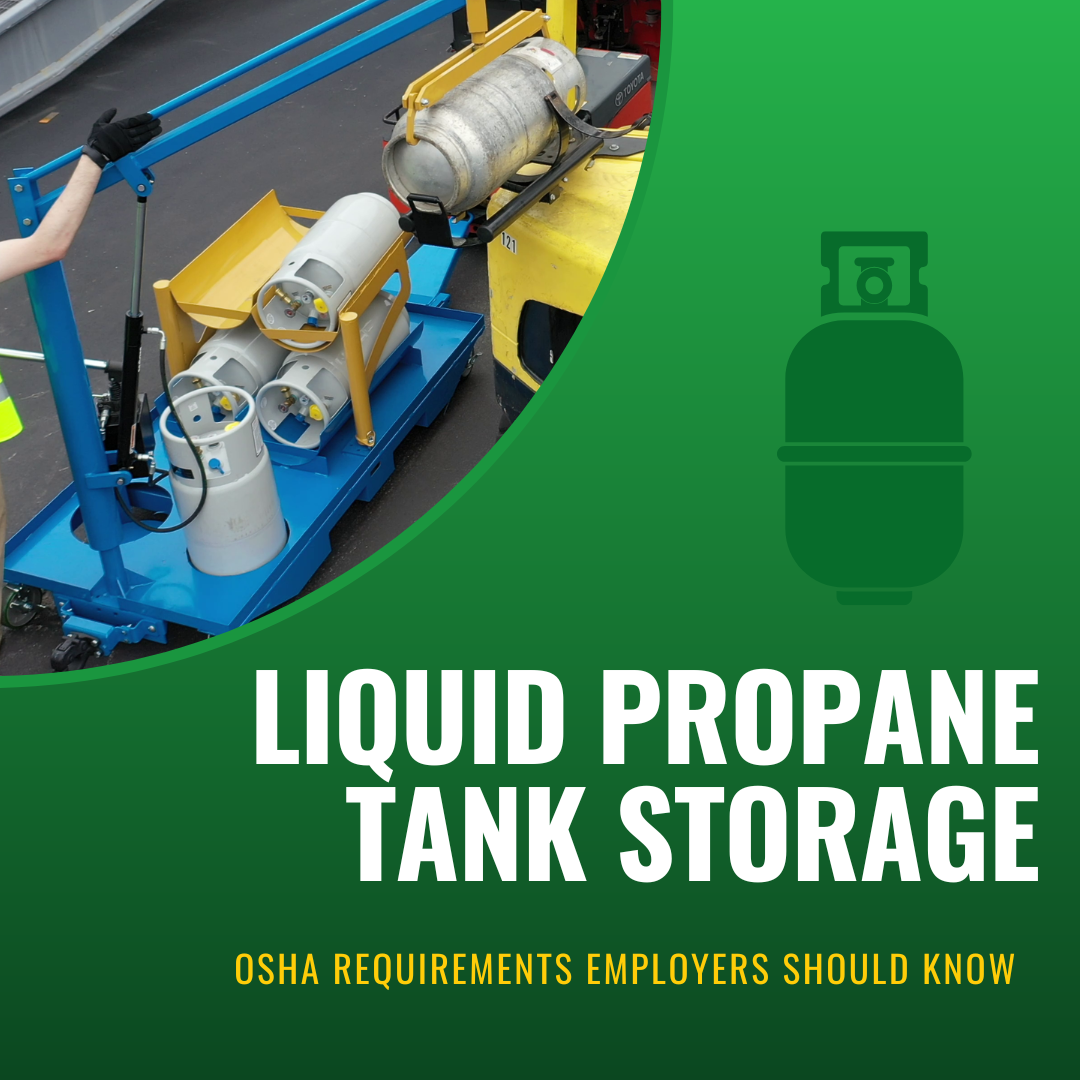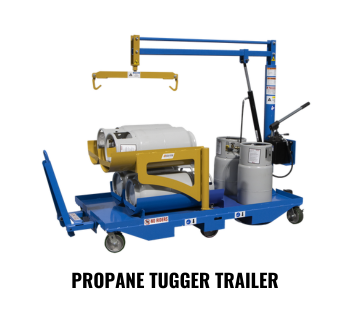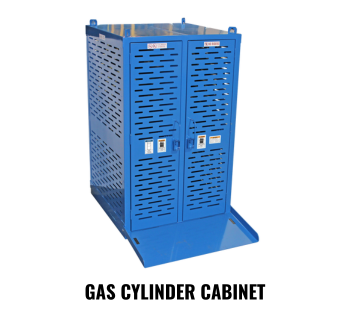We use cookies to make your experience better. To comply with the new e-Privacy directive, we need to ask for your consent to set the cookies. Learn more.
Liquid Propane Tank Storage: OSHA Requirements Employers Should Know
The Occupational Safety and Health Administration (OSHA) has strict rules for how you operate forklifts. To remain fully compliant, however, owners of liquid propane (LP) trucks must also follow OSHA standards related to fuel storage. That requires employers to understand a whole separate group of regulations. <

Rules for LP handling in general industries — including warehousing — are found in OSHA standard 1910.110 - Storage and handling of liquefied petroleum gasses. If you operate LP forklifts in the construction industry, consult OSHA standard 1926.153 - Liquefied petroleum gas (LP-Gas).
Regardless of your industry, however, the rules for handling the sorts of LP tanks that fuel lift trucks are buried in the rules for broader LP storage. Searching through OSHA’s standards for a specific set of rules can be a time-consuming task.
For most LP forklift fleets in warehousing environments, however, employers can start their compliance efforts by understanding a single section of the 1910.110 standards: OSHA standard 1910.110(f) - Storage of containers awaiting use or resale.
Explore Gas Cylinder Storage & Handling solutions from Solus Group.
Keep reading for a simple introduction to this OSHA rule about liquid propane tank storage. While what follows can help you comply with OSHA rules for propane tank storage, it is neither comprehensive nor intended as legal advice. For detailed advice, contact your nearest OSHA Compliance Assistance Specialist.
The OSHA Standard on Liquid Propane Tank Storage for Forklifts
Most LP-powered lift trucks run on 33-pound propane cylinders. According to the first section of the 1910.110(f) standards, the storage rules apply to portable containers with water capacities below 1,000 pounds. In other words, this is almost certainly the standard that covers storage for your forklift fuel tanks.
Here are a few of the most important OSHA propane tank storage requirements for owners of LP forklift fleets.
- Choose storage locations that reduce the risk of physical damage, high heat, or willful misuse (1910.110[f][i]).
- Store LP cylinders away from exits and stairways (1910.110[f][2][ii]).
- Only use LP cylinders that protect valves from damage due to drops or strikes. This protection may come from a recessed valve, a ventilated cap, or a collar. The protective feature must ensure valves cannot be damaged by force equal to that of a 30-pound weight dropped 4 feet (1910.110[f][2][iii], 1910.110[f][2][iii][a], 1910.110[f][2][iii][b])
- Keep cylinder outlet valves closed during storage (1910[f][2][iv]).
- Facilities that aren’t open to the public, such as most warehouses, must not contain more than 300 pounds of LP gas at a time — unless they’re in a building or room that meets additional requirements (1910.110[f][4][i], 1910.110[f][5][i]).
- Liquid propane containers must be protected against unauthorized access, usually by storing them in a “suitable enclosure.” (1910.110[f][6][ii]).
- Storage locations outside supply depots or propane sellers must have one or more portable fire extinguishers available at all times. This fire extinguisher must carry a minimum rating of 8-B, C (1910.110[f][7]).
For the full 1910.110(f) standards, see OSHA’s listing. Once you’re familiar with the OSHA propane tank storage requirements, however, you’re still left with an important question: What equipment do you need to maintain compliance? 
Start with cylinder storage solutions from Solus Group. Whether you choose Gas Cylinder Cabinets, a Gas Cylinder Cabinet specifically for LP tanks, or a full-sized Cylinder Storehouse, these ventilated enclosures protect LP tanks while preventing unauthorized access.
They qualify as “suitable enclosures” per standard 1910.110[f][6][ii]. These products also meet the requirements of standard 1910.110[f][i], by protecting stored cylinders from physical damage and tampering. (To improve safety and productivity while transporting LP cylinders, use Cylinder Transporters, fully enclosed Cylinder Transport Cages, or ergonomic Propane Tugger Trailers.)
When it comes to propane tank storage, OSHA makes their requirements quite clear. Cylinder storage equipment from Solus Group can help you meet these requirements, improving safety and compliance at your facility to a remarkably quick ROI.
For help choosing the ideal gas cylinder storage and handling equipment for your facility, contact the product specialists at Solus Group. Call us at 314-696-0200 today.

